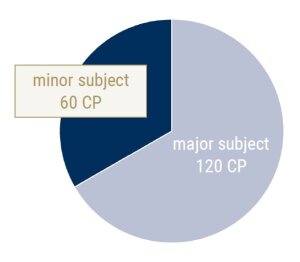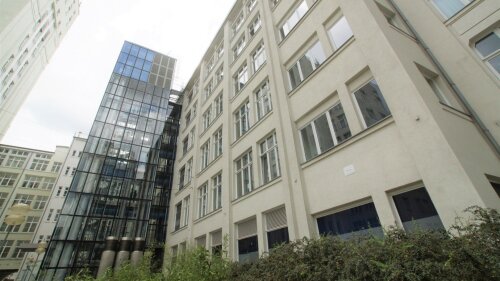
- Close cooperations: The Institute of Computer Science maintains close personnel and content-related cooperations with companies in the high-tech sector in Jena, Thuringia and Germany as well as with companies operating worldwide. Additionally, it closely cooperates with non-university, industry-affiliated research institutions in and around Jena.
- Full of tradition: A short trip back in history! The logician and developer of the first formal languages Gottlob Frege taught at the University of Jena—supported by the physicist Ernst Abbe. By the way: The first computer of the former GDR, the OPREMA (from the German ‘Optik-Rechenmaschine’), a computer for optical calculations was built in Jena in 1955 by VEB Carl Zeiss Jena. Based on the above history, our University later got its own institute for computer science in the reunified Germany.
- Excellent research: The main research areas of theoretical computer science in Jena are algorithms and data structures as well as logic and complexity theory. The research de in logic and complexity theory is more focused on the foundations of computer science. The area of theoretical computer science in Jena is involved in various national and international research projects.
- Possibilities without borders: Experience internationality! The University attracts students and scientists from all over the world with its appealing conditions and shapes Jena's character as a future-oriented and cosmopolitan city — ideal conditions for international prospective studentsmp4, 55 mb.
- Adventure abroad: The University of Jena has a worldwide network of partner universitiesExternal link. Among them are, for example, the universities of Sao Bento (Brazil), Stellenbosch (South Africa) or Sibiu-Hermannstadt (Romania).
-
University entrance qualification
A university entrance qualification, such as a general secondary school leaving certificate, is required for admission onto the study programme.
More information on university entrance qualifications can be found here.
-
Language requirements
Admission and language requirements for applicants of foreign nationality and without German Abitur: www.uni-jena.de/en/study-orientation-international
Room 3243
Ernst-Abbe-Platz 2
07743 Jena
Google Maps site planExternal link
Room 3329
Ernst-Abbe-Platz 2
07743 Jena
Google Maps site planExternal link
Room 3227
Ernst-Abbe-Platz 2
07743 Jena
Google Maps site planExternal link
University Main Building / SSZ
Fürstengraben 1
07743 Jena
Google Maps site planExternal link
Office hours:
We offer consultations in person, by telephone, and via Zoom. You can make an appointment by calling us on +49 3641 9-411111 (Mondays to Fridays from 9:00 to 11:00) or outside these office hours on +49 3641 9-411200. You can also use our remote help desk.
Consultation hours:
Mondays, Tuesdays, Thursdays and Fridays (9:00 to 12:20), Tuesdays (14:00 to 18:00), and Wednesdays and Thursdays (14:00 to 16:00).
Video chat: To the video chat – Zoom Videochat ZeitenMondays to Fridays (12:30 to 13:00) Password ZSB2020 Data protection informationpdf, 101 kb
University Main Building, Room E065
Fürstengraben 1
07743 Jena
Google Maps site planExternal link
Opening hours:
Information Desk (UHG; Room E0.65)
Mondays (10:00 – 12:00)
Tuesdays (13:00 – 15:00)
Wednesdays (10:00 – 12:00)
Thursdays (13:00 – 15:00)
Fridays (10:00 – 12:00)
You can also use our remote help desk at
www.uni-jena.de/service-ssz
or send us your enquiries by post.
Telephone hours:
Mondays to Fridays
(9:00 – 11:00)
Postal address:
Friedrich-Schiller-Universität Jena
Studierenden-Service-Zentrum
07737 Jena


